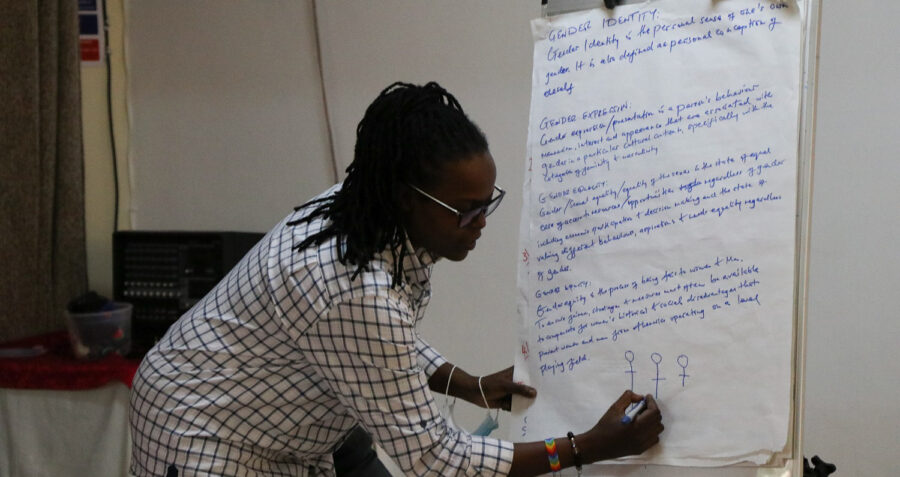Gender-transformative training with LGBT+ organisations

Key information
- Organisation: LVCT Health
- Country: Kenya
- Region: Eastern and Southern Africa
- Stage of innovation: Stage 3. Pilot
- Start date: 2020
- End date: 2021
- Type of innovation: Movement building: convening or organising a movement
- Budget: Zero Violence
- Funder: Foreign, Commonwealth and Development Office (FCDO)
Summary of intervention
Human rights violations targeting people for their sexual orientation, gender identity, expression and sex characteristics (SOGIESC) are prevalent in Kenya. These communities face stigma, discrimination, violence, lack of protection by law enforcement and government officials, and limited access to services. In addition, the criminalisation of consensual same-sex relationships between adults increases the risks they face.
LVCT Health — a partner in the Zero Violence project — is conducting gender-transformative training with LGBT+ organisations to explore the underlying reasons for SOGIESC-related violence, including social and gender norms and legal and policy environments. Organisations have established partnerships to build a movement and amplify their voices, advocating for their rights and changes in the policy and legal environment, including addressing gender-based violence (GBV) and access to HIV and sexual and reproductive health and rights services. Health care workers have received GBV awareness training, including on national transgender guidelines and GBV laws, and have been sensitised to the needs of the LGBT community. Through interactive role play and experiential learning, they can explore stigma, personal attitudes and negative perceptions.
Important government documents now recognise SOGIESC issues. The trans movement has strengthened and grown; trans and gender non-binary people can get IDs and have access to doctors, hormones and safe spaces that they did not have before. Following training, health care workers now plan to disaggregate gender and sexual identity on clinic forms. Members of the SOGIESC communities shared contacts and hotline numbers and are creating a directory for service referral for GBV cases.
learnings
Use of virtual spaces after trainings for further engagement is helping to maintain and sustain an ongoing movement; WhatsApp platforms are enabling people to continue to engage on the compendium of GBV laws and support each other.
next steps
Going forward, communities are calling for more peer educators to encourage marginalised communities to access services.
sustainability
Having completed the training, participants are using virtual spaces for further engagement, which is helping to maintain the community and to sustain an ongoing SOGIESC movement. WhatsApp platforms are enabling people to continue to engage on the compendium of GBV laws and to support each other.
For more information, read the Zero Violence leaflet on Reducing gender-based
violence in Kenya.

